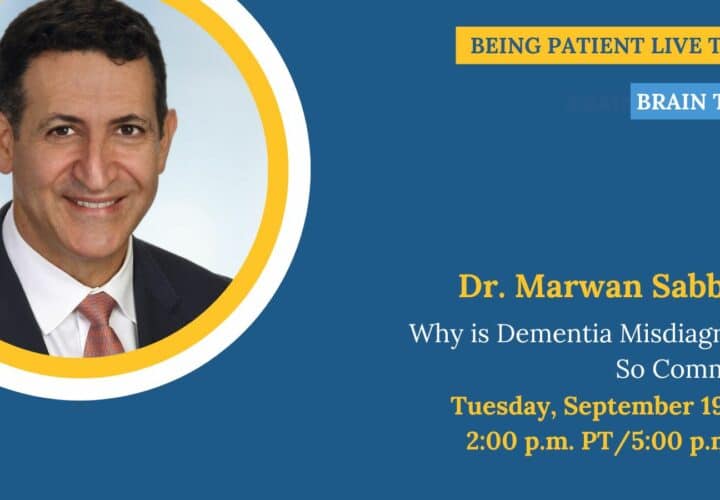Long-term care insurance can feel out of reach for those already diagnosed with Alzheimer’s or another dementia. But you might be considering this insurance if you know such a disease runs in your family. Here’s what you need to know before taking the leap.
If your parents have Alzheimer’s or you’ve found yourself caring for someone with the disease, you might be thinking about how to plan for your own future. This could include thinking about whether or not to get long-term care insurance, which was created to cover the costs of a residential care facility, such as a nursing home. But long-term care insurance comes with its complications, experts say.
The long-term care insurance industry has seen its earnings fluctuate and diminish since the 1970s and 80s, after industry leaders underestimated how many people would file to use their policies. Since then, some people who bought policies have been grateful to have done so. Many others, however, have found that insurers do not cover large parts of their care or that their insurer has gone bust, leaving them with little reprieve.
These macro factors, along with the little-to-no coverage offered by the US government, and problems clients have faced with their policies and the high annual premiums–which can cost subscribers thousands of dollars per year–can complicate the decision of whether or not long-term care insurance is indeed worth it.
Despite the industry’s uncertainties and the problems clients have encountered, “it can be a good decision for some people,” according to Norma Coe, an associate professor in the department of medical ethics and health policy in the University of Pennsylvania’s Perelman School of Medicine.
Those who have studied or work with long-term care insurance — including Coe and specialists from the American Association for Long-Term Care Insurance and Alzheimer’s Association — say that this is a personal decision depending on several factors. Here are some of the issues they say you or your loved ones might consider.
1. What does long-term care insurance cover, and what are the alternatives?
Long-term insurance tends to provide coverage for nursing homes or home health services rendered in a person’s own home, according to a Congressional Research Service report from last year. It could also cover other resources such as medical equipment and support to caregivers.
However, insurers have reportedly become stringent about evaluating and denying claims. “They tightened their belts,” said Alan Kassan, a senior partner with the California law firm Kantor & Kantor, quoted in an article by the New York Times.
The extent of the coverage also depends on the policy you choose. “Only a relative few companies offer this protection today and there are significant differences between the various policies in terms of both price and coverage,” said Jesse Slome, director of national industry and advocacy organization American Association for Long-Term Care Insurance, in an email interview with Being Patient.
To understand whether a policy is good for you, consider your specific needs, said Coe. Do you have a network of people who could provide care? Or would you prefer to be in an assisted care facility rather than at home?
2. If I don’t get long-term care insurance, what are my other options for financial assistance with long-term care? Could Medicare, Medicaid, or state-by-state resources help?
As far as alternatives, there is no federal policy in the U.S. that requires you to have insurance for long-term care, or provides long-term care services.
While government-funded insurance Medicaid does offer some coverage, “in many states you do have to impoverish yourself to apply” for Medicaid, Coe noted. Medicaid’s counterpart for people aged 65 and older, Medicare, does not offer any long-term coverage for services such as nursing homes. As a result, getting long-term care insurance can be worth it, given the lack of a federal program to cover these costs, Coe said.
This lack of adequate support has led critics and specialists such as Coe to cite the need for a wide-scale government policy, which currently does not exist.
Policy from countries including Japan and The Netherlands mandates government-funded long-term insurance care, according to The New York Times.
Other options to pay for long-term care in the U.S. can include using your savings or your own funds, investing in a long-term care annuity, purchasing a hybrid plan–which combines long-term care insurance with life insurance–or buying a short-term care policy, according to AARP, a national nonprofit focused on aging.
According to Coe, another factor that can help people decide whether or not to invest in long-term care insurance is to research what affordable or free local resources or programs for elder care already exist in their states, as an alternative to this insurance.
3. What’s the difference between long-term care insurance and hybrid insurance?
The difference between hybrid policies–which combine traditional long-term care insurance with life insurance–and traditional long-term care insurance is that the hybrid version offers two modes of payout: either during the long-term care, or when someone dies without using their long-term care insurance, according to a NerdWallet interview with a financial planner.
This can deal with the concern of having wasted your long-term care policy if you do not end up needing long-term care.
With hybrid insurance, there are fixed premiums whereas traditional long-term care insurance premiums have seen significant increases as part of an effort to counter financial losses, according to The New York Times and a general comparison made by the website Annuity Expert Advice.
4. I do want long-term care insurance. When and where can I get it?
“The sweet spot for investigating insurance as an option is between ages 55 and 69,” said Slome. If someone has a family history of the disease or concern otherwise about higher Alzheimer’s risk, starting earlier may make sense, he said. “But here again, it really is important to start by speaking to a specialist.”
People looking to buy long-term care insurance can’t purchase it directly from an insurer, said Slome. Most people looking for this insurance can work with insurance brokers, agents, or financial planners, according to the Administration for Community Living which is part of the federal Department of Health and Human Services.
Slome said that people can go through the American Association for Long-Term Care Insurance to be put in touch with a specialist such as an independent broker.
Other people that can help advise customers are lawyers or financial planners, said Coe.
Organizations such as AARP also provide free articles answering questions such as how to fund long-term care and how to use long-term care insurance.
The number of companies actually selling long-term care policies has decreased–by 2020, the number of insurers selling policies had fallen from over 100 to less than a dozen, according to the New York Times. People can contact their state’s Department of Insurance to see which companies provide coverage in their state, according to the Administration for Community Living.
According to the Administration for Community Living, long-term care insurance may also be available through an employer’s group insurance plan. Administrators who deal with employee benefits and pension plans may be able to provide more information.
5. Am I eligible for long-term care insurance?
Before being enrolled in long-term care insurance, Slome added, insurers will first need to evaluate an applicant’s eligibility with a review of their medical history. This evaluation process costs money–ranging from $600 up, said Slome. “If you are declined by one company, some companies will not accept (and process) your application,” he said. “A specialist will know what health conditions are acceptable.”
When it comes to eligibility for long-term care insurance, Slome said age and health are the two most important factors. Insurers also note height, weight and prescription drugs as well as existing diagnosed conditions.
“There are literally hundreds of different drugs that are commonly taken by seniors that will prevent one from getting coverage,” Slome said. “These standards can vary among insurers, another reason to speak with a specialist who will ‘shop your health’ in order to help you avoid being declined.”
6. Can I still get long-term care insurance if I have a diagnosis of MCI or early-onset Alzheimer’s? What about a positive blood test for an Alzheimer’s biomarker?
A spokesperson for the Alzheimer’s Association said that in general, “receiving a dementia diagnosis would not ‘disqualify’ someone from applying for” this insurance.” However, he said, one’s “chances of getting it would be severely diminished or cost-prohibitive.”
According to Slome, the likelihood of sky-high premiums or outright rejection also applies to people with “any diagnosis of cognitive issues,” said Slome. He added that “at older ages, the insurers will [also] often give a cognitive assessment as the costs of care associated with Alzheimer’s and dementia are so high.”
Hybrid insurance takes the same factors in account when evaluating customers, Slome said.
Other factors can make insurers view you as ineligible, including genetic tests such as Alzheimer’s blood tests, which have been touted as an easy and helpful supplementary way to help diagnose the disease.
In an interview with Being Patient, medical ethics and health policy researcher at the University of Pennsylvania Claire Erickson described the accessibility and unregulated nature of these tests as “a can of worms that I don’t think that we’re prepared for.”
This is because while patient health information from genetic tests is covered by health privacy laws when the test has been ordered by health professionals, “it’s more of a gray area for direct-to-consumer genetic testing,” which tends not to be protected, Erickson said.
Neurologist and Alzheimer’s expert Dr. Marwan Sabbagh said patients should be mindful, when considering biomarker testing — like genetics tests or the new blood tests that detect Alzheimer’s protein biomarkers — of the impacts test results could have on insurance.
“People who are not symptomatic [should] not get tested routinely,” Sabbagh said of Alzheimer’s genetic biomarker tests in a Being Patient in a Live Talk. Though if a person is considering enrolling in clinical trials for certain kinds of Alzheimer’s treatments, getting a genetic test may be part of the clinical trials admissions screening, he noted.
If I’m deemed ineligible, can I do anything about it?
Slome recommended that people discuss this with one of the specialists mentioned above, to see if they can identify insurers that might be more likely to accept their application as “insurers may have different health standards.”
You can also “consider short-term care insurance which is available in 30 or so states and can be an option for those with some existing health conditions,” he said. Applications for this type of insurance are typically less complicated and allow for applicants who are older than those accepted by long-term health insurers, according to financial consultancy ElderLife Financial and Slome, cited in an interview with Kiplinger.
But people should do their research on these plans too, as although short-term care policies accept more applicants and have lower premiums, the policies are usually only for a year and offer less coverage.
Jade-Ruyu Yan is a journalist investigating how corporations and government policy impact peoples’ lives. Most recently, she has reported for Ad Age, The Chicago Tribune and The South Side Weekly.




Thank you. A very helpful article. I took the time to read it a second time.
Ira, thank you so much for being part of our community here at Being Patient!
I have been diagnosed with Early Onset Alzheimer’s disease. When the time comes I would like to stay in my home. I have no family that can take care of me. Are there any insurance companies that would give me a policy?
Lula, thanks so much for being here. We have a couple articles that draw on expert insights to discuss topics like financial planning and long-term care insurance. Here are some to get you started: https://www.beingpatient.com/financial-planning-dementia-kim-natovitz/, https://www.beingpatient.com/dementia-costs-how-families-can-prepare/. There are also a number of things experts recommend in terms of home design: https://www.beingpatient.com/dementia-home-design-grant-warner/